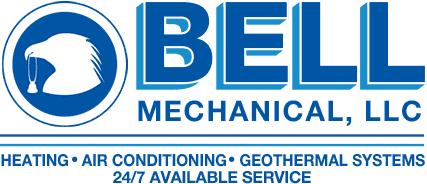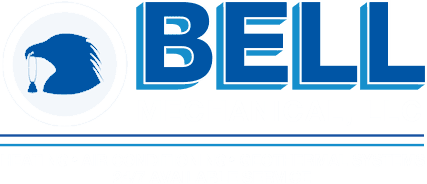Unexpected electrical quirks in your HVAC system might seem harmless—a breaker trips once, a faint buzzing sound comes from the furnace, or the lights briefly flicker when the AC starts. In many Westchester County homes, these subtle signs are the first hint that your system’s wiring or electrical components are being pushed to their limits. Ignoring them could spell trouble down the line, from expensive repairs to genuine safety risks. At Bell Mechanical, we believe every homeowner deserves peace of mind when it comes to comfort and safety. Let's break down how to spot developing HVAC electrical problems in Westchester County, share what makes these systems vulnerable, and explain how our service-first approach can prevent small issues from turning into big headaches.
What Are the Most Common HVAC Electrical Problems in Westchester County?
Many of the HVAC electrical problems in Westchester County stem from our area’s unique blend of old homes and advanced systems. One of the leading issues is frequent circuit breaker trips that interrupt heating or cooling. This can happen when electric loads exceed what the breaker or wiring can safely support, often due to undersized electrical panels, aging infrastructure, or equipment working overtime. Over time, long-term wear on electrical connections inside older HVAC systems—or poor-quality repairs from past upgrades—can cause intermittent power loss and nuisance outages.
Capacitor and relay failures are another frequent source of HVAC issues locally. Capacitors help motors start smoothly, and when they age or overheat, you might notice humming without actual system activation or short cycling of your unit. Relays, which help transfer electrical signals from thermostats to your main equipment, can degrade or stick, preventing your system from responding when you adjust the temperature. These problems are especially common in homes where HVAC upgrades have been layered onto legacy electrical systems without comprehensive rewiring.
Improper grounding, worn insulation, and patchwork wiring can also cause problems, especially in houses that have undergone multiple additions or renovation projects. You might find junction boxes with confusing splices or overloaded circuits that create safety risks. These wiring problems can silently reduce energy efficiency and lead to higher operating costs while increasing the dangers of electrical fires or equipment failure. During routine calls, our team focuses on identifying any of these warning signs and prioritizing solutions that address the heart of the issue.
How to Recognize Dangerous HVAC Electrical Issues
Knowing when an HVAC electrical problem has crossed into dangerous territory can make a meaningful difference for your safety. The most critical sign is a burning or metallic smell near your vents or HVAC equipment, which can point to overheating wires or insulation beginning to break down. In this case, shut off your HVAC system right away and avoid trying to reset breakers or power it up—burning odors are never something to ignore, as they indicate a real risk of fire or major damage.
Unusual noises such as buzzing, crackling, or popping coming from your furnace, AC, or thermostat can reveal a struggle in the electrical current or failing internal components. These sounds often signal that relays or wiring connections are in trouble. If left unchecked, these seemingly small symptoms may precede power surges, severe component breakdowns, or even complete loss of heat or cooling on the hottest or coldest days.
If your breaker trips more than once—especially if it won’t reset or trips again immediately—there’s likely an underlying electrical fault that’s overloading the circuit. Document the timing and circumstances (such as whether it happens at startup or during longer cycles) and provide this information to your technician. Frequent electrical disruptions are not just an annoyance; they can gradually damage motors and sensitive control boards, leading to costly repairs and potential safety risks.
Why Do Older Westchester Homes Have More HVAC Electrical Problems?
Westchester’s rich collection of older homes provides both charm and challenges, especially when it comes to HVAC electrical systems. Many homes constructed before the 1970s rely on original wiring and panels, which are not equipped to handle the power requirements of modern HVAC equipment. Even homes that have had some upgrades might suffer from “mix and match” wiring, where only select circuits were improved and weak spots remain hidden behind walls.
Frequent renovations in the area have led to layers of wiring from different eras, increasing the chances of poorly joined connections, splices, and outdated wiring techniques. Junction boxes sometimes end up overloaded, and wires can run close to water pipes, leading to hidden moisture damage. As insulation deteriorates over time—especially in damp basements or crawlspaces—wiring can become exposed or corroded, increasing the chance of shorts or unexpected shutdowns just when the system is most needed.
Another common issue is electrical panels that are simply too small for today’s demands. If your home still uses a fuse box or an older breaker panel, adding a modern HVAC system may push its capacity to the limit, making it prone to frequent overloads. Our team always evaluates your home’s entire electrical setup to spot these risks and provides recommendations that help keep your HVAC running reliably—and most importantly, safely.
Common Early Warning Signs of Electrical Trouble in HVAC Systems
Early detection is the best defense against expensive or dangerous HVAC electrical failures. Homeowners should watch for intermittent power losses—a brief shutdown or restart that seems random but grows more frequent over time. These interruptions may be dismissed as utility flickers but often suggest loose wires or failing relays that need prompt attention.
Persistent low-level buzzing or humming at the main unit, the thermostat, or near supply vents could mean that a relay, transformer, or a control board is on its last legs. Odd sounds during startup or system shutdown shouldn’t be overlooked, even if your comfort isn’t immediately affected. Left unrepaired, these minor issues can be the forerunner of a complete system outage or even electrical hazards.
Thermostat problems provide another subtle clue. If your thermostat reads incorrectly, maintains the wrong temperature, or fails to send the signal for heating or cooling at the right time, there may be a problem with its wiring or mounting. Electronics that lose power or become unresponsive during system operation could indicate underlying voltage drops or weak connections in the broader electrical system, especially in homes with older wiring.
What to Do When Your HVAC Breaker Keeps Tripping
A constantly tripping HVAC breaker is more than a mere inconvenience—it’s a warning sign that shouldn’t be ignored. Safely turn off your HVAC system at the thermostat, then fully reset the affected breaker. If the breaker immediately trips again, leave it off and don’t attempt repeated resets; each attempt can degrade the breaker itself, reducing its ability to protect your home’s wiring in the event of a future problem.
Start with the basics by checking all air supply and return vents for blockages. Heavy dust, pet hair, or household clutter can limit airflow and increase the burden on motors, causing them to draw excess power. Changing your HVAC air filter regularly is another essential step, as a clogged filter is one of the most common causes of overheating and short cycling—especially during peak usage months.
Never try to “solve” a tripping breaker by installing a higher-amp breaker or replacing fuses with higher-rated ones. This is extremely unsafe and can allow wiring to overheat, creating a significant fire risk. If basic checks don’t resolve the problem, document when the trips occur (startup versus running or during severe weather) and contact Bell Mechanical for a professional assessment. Our team safely evaluates the root cause, whether it’s a worn component, wiring issue, or larger electrical imbalance.
Which HVAC Electrical Repairs Are Safe for Homeowners and When to Call a Professional
Some HVAC electrical tasks can be safely performed by homeowners, provided you take the right precautions. Replacing thermostat batteries, resetting a breaker once (as long as it holds), and changing air filters are all within reach for most people. These steps often resolve minor glitches like temporary outages, incorrect thermostat readings, or short cycling caused by airflow obstructions.
For anything involving exposed wires, blown fuses, visible sparks, tripping breakers that don’t reset, or any form of burning smell, always call a licensed professional. In New York, electrical repairs for HVAC systems require not only safety know-how but also code compliance, which protects you during inspections, resales, or insurance claims. Attempting a repair without the right training can unintentionally worsen problems or void your system’s warranty.
When in doubt about what’s safe, remember: the cost and risk of guessing are always higher than waiting for professional help. Shut your system down from the thermostat, document symptoms and circumstances in detail, and allow Bell Mechanical to carry out a thorough evaluation.
Why Ignoring Minor HVAC Electrical Problems Can Lead to Expensive Repairs
Small HVAC electrical problems often start as minor annoyances but can quickly spiral into major expenses if left unchecked. Loose wires or shorts create additional resistance, which generates heat that damages sensitive parts like motors or control boards. Even if your system seems to recover after a shutdown or reset, these “hidden” problems usually worsen, leading to longer outages and more involved repairs.
Fire safety is a serious consideration. According to the National Fire Protection Association, electrical system malfunctions remain a leading cause of house fires across the United States. Persistent tripping breakers, burning odors, or ongoing buzzing noises are not just symptoms—they’re warnings. Everyone’s safety is put at risk when electrical problems go unresolved, especially in tightly spaced Westchester neighborhoods where one incident can quickly escalate.
Minor electrical faults can also undermine your HVAC system’s warranty or insurance coverage. Most manufacturers mandate prompt attention to electrical problems, and homeowners’ insurance may hold back on claims if repairs weren’t handled by a licensed pro. By acting at the first sign of trouble and engaging certified help, you protect your home’s value, warranty, safety, and your own peace of mind.
How Our Technicians Diagnose & Repair HVAC Electrical Problems in Westchester County
When our technicians arrive for an HVAC electrical repair, we start with a detailed inspection of your equipment, connections, and the surrounding electrical panel. Using professional meters, our team measures voltage, amperage, and resistance to identify small shorts, overloaded circuits, or potential areas of failure. Our approach focuses on diagnosing the true source of a problem—not just fixing the symptom—giving you longer-lasting safety and reliability.
We adhere strictly to current New York State electrical codes as well as local Westchester regulations. Continuous training ensures that our technicians always use up-to-date methods that safeguard both your home and the HVAC system itself. If we find outdated wiring, poorly sized breakers, or non-compliant materials, we offer clear recommendations for upgrades that keep you compliant and minimize future surprises.
Throughout each repair, we prioritize clear communication. We explain findings and options in straightforward language before any repair takes place. We understand the stress that HVAC issues can cause, so our process is designed to keep you in the loop while respecting your time, your home, and your comfort. With every call, we reinforce our focus on service, technical skill, and true professionalism.
What to Expect When You Schedule HVAC Electrical Repairs in Westchester County
From your first contact with Bell Mechanical, you can count on an experience that values your time, comfort, and trust. Our team listens to your concerns, asks about your home’s age and history, and schedules an appointment window that works for you. Communication remains a priority—we provide updates on technician arrival and work efficiently to minimize any disruption to your daily life.
On arrival, our technicians review your entire system—equipment, wiring, and panel—before starting any repairs. We present our findings in detail, answer questions thoroughly, and provide options with clear, upfront pricing so you remain in control throughout the process. If urgent service is needed, we offer 24/7 assistance to address emergencies anytime, day or night. All our technicians have undergone background checks and are trained to treat your home with care and respect.
Choosing a code-compliant, community-focused provider is especially important for HVAC electrical repairs in Westchester County, where building ages and standards differ from block to block. Our decades of service to local homeowners mean your repairs are performed with care, precision, and an eye on building long-term trust. If you notice warning signs or want to ensure your system is safe and ready for any season, call Bell Mechanical at (845) 409-0490 for an evaluation you can depend on.


